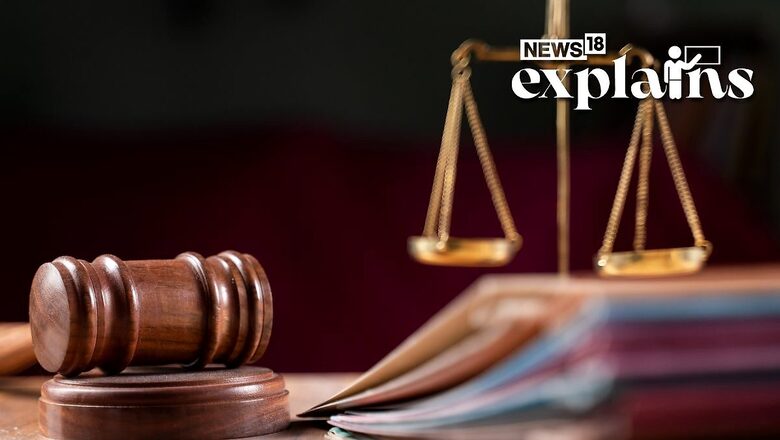
views
On August 5, 2019, the Union government passed a resolution in the Parliament for revoking Article 370 of the constitution of India, which gave the state of Jammu & Kashmir a special status.
Three days later, Prime Minister Narendra Modi said in his televised address said, “We have removed the provisions in Article 370 which acted as an impediment to J&K and Ladakh’s development.”
“The people of Jammu and Kashmir and Ladakh were deprived of their rights. With the abrogation of Article 370, the dreams of Sardar Vallabhbhai Patel, B.R. Ambedkar, and Syama Prasad Mookerjee have been fulfilled. A new era in Jammu and Kashmir has now started,” he had said.
Following the revocation of Article 370, more than 20 petitions were filed challenging the constitutional validity of the Centre’s decision to abrogate Article 370.
First petitioner
Advocate ML Sharma was the first to challenge the constitutional validity of the union government’s decision to abrogate Article 370.
4 CJIs, 3.5 Years
The hearing started in December 2019 when Justice Sharad Arvind Bobde was the Chief justice. Then it was mentioned in April 2022 before the then-chief justice NV Ramana. Then after it was mentioned before Chief Justice UU Lalit who agreed to list the petitions, but it could not be listed in his tenure. And, finally, it has been listed now when Justice DY Chandrachud is the chief justice.
In the last three-and-a-half years, two judges on the last constitution bench that dealt with this matter have retired. Justices NV Ramana and Subhash Reddy who were part of the original bench retired and have been replaced by Chief Justice Chandrachud and Justice Sanjiv Khanna.
On March 2, 2020, Supreme Court’s constitution bench ruled that it would not be necessary to refer the matter to a seven-judge bench.
Shah Faesal Withdraws Petition
One of the petitions was filed by Indian Administrative Service (IAS) officer Shah Faesal. Faesal resigned from IAS in January 2019 and floated his political party the ‘Jammu and Kashmir People’s Movement’. Later he left politics and the party and in April 2022 he was reinstated as an IAS officer.
Shah Faesel had later withdrawn his petition, as well.
In September 2022, Faesal moved Supreme Court seeking to withdraw his name from the list of petitioners challenging the presidential order repealing Article 370 of the Constitution.
Shehla Rashid, a former Jawaharlal Nehru Student Union (JNUSU) leader also chose to withdraw her petition.
As all the petitions challenging the abrogation of article 370 were clubbed together the case, title was ‘Shah Faesal And Ors. v Union Of India And Anr’. However, as Shah Faesal had withdrawn his petition it was requested to change the case title. The apex court passed the order to that effect on Tuesday and now the case will be known as In ‘Re : Article 370 petitions’.
Affidavit by the central government
As reported by the Live Law on July 10, the central government had filed a fresh affidavit in the matter and stated that its decision to dilute Article 370 in 2019 revoking the special status of Jammu and Kashmir has brought an ‘unprecedented era development, progress, security and stability to the region’.
The Centre defended its move by stating that in the past 3 years, schools, colleges, universities, hospitals and other public institutions have been functioning without any strikes or disturbances. “The earlier practice of daily hartals, strikes, stone pelting and bandhs are a thing of the past now,” the government said.
Now, four CJIs, three-and-a-half years of waiting, two important petitioners withdrawing their pleas, the petitions challenging the abrogation of article 370 are to be be heard from August 2, when the Supreme Court will start hearing the case on a day-to-day basis. It will be one of the most watched-after cases of independent India with far-reaching constitutional and political ramifications.


















Comments
0 comment